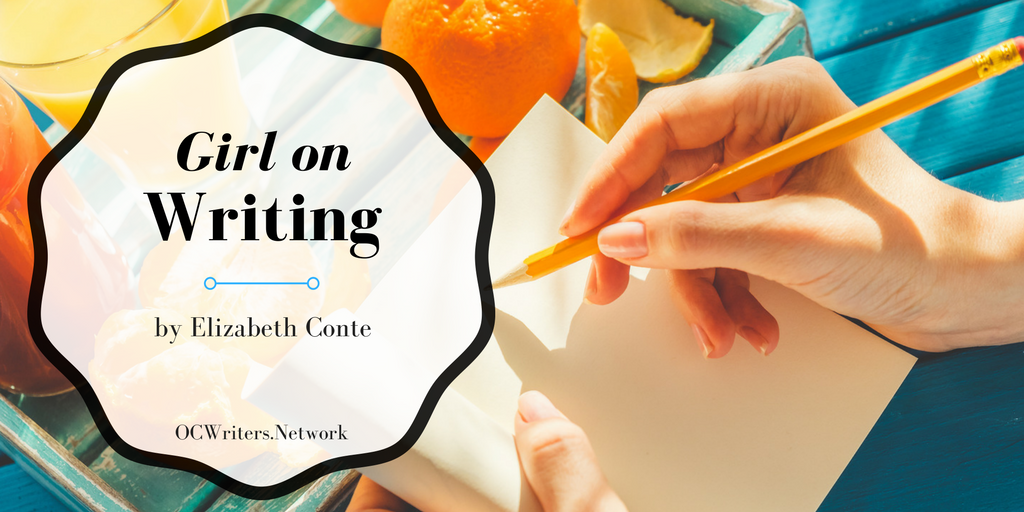by Elizabeth Conte
The sun is merciless as its golden rays are omnipresent…lingering through the dog days of summer. Constant. Hot. Days to sit on the beach, lie by the pool, or hide away in an air-conditioned room. It’s time for a hot summer read!
Something Steamy
There’s nothing hotter than a sexy read! But how do you write about it? A writer must balance how much to say, show, and tell, because how you write about sex will decide how you are categorized as a writer.
I hate to disappoint, but I am not an erotica writer. (Not that there is anything wrong with that!) Nor am I a romance writer. I’m an upmarket women’s fiction writer. But I do write about love, romance, and yes, sex. Finding that balance – and the genre it best fits – has been a journey.
A Purpose For Passion
When I first started writing, I wanted to bring back the quintessential love story. I wanted my characters to develop deep relationships that gave way to passion. I thought I was a romance writer. But, after many rejections, one editor finally gave me a clue, “Your tone and pace are romance, but your story is just not that.” It was then that I realized I wasn’t a romance writer, but a women’s fiction writer. Author Nora Roberts best explained the difference, “Women’s Fiction is a story that centers on a woman or on primarily women’s issues, not necessarily the romantic relationship based books I do, but the woman’s story.”
Sex and the Writer
Writing sexual scenes is extremely difficult. You would think it would be fun and sexy. Well, I hate to say, it’s not. It’s truly agonizing.
Characters come from my imagination, but as any writer can attest, once established, they are entities unto themselves. When I say they talk to me, they really do! They move and breathe around me, and have a life even when I’m not writing. I am merely a scribe, taking dictation. I’m an observer preserving the moment, stepping into their world as a visitor.
So, when I write about their sexual encounter, it’s like I am intruding on the most intimate moment between two people. It’s raw and personal. I feel I am invading their privacy, and yet I must reveal their actions and emotions to the reader. I literally walk around the scene from all angles, watching what is going on, and then write it down. I describe what my characters are doing, feeling, and thinking. I am a voyeur.
What is Enough?
If a relationship is being nurtured in a novel, sex is usually a part of it. And any good romantic story needs passion, whether it’s a kiss, or two people enraptured in physical ecstasy. When I write about sex, it’s a part of the story; a development of the relationship between the two characters and not just a sex scene. It’s personal and intimate, and I feel like I have a responsibility to be honorable to my characters, as well as my readers. I have to say just enough, but not explain every detail. My goal is for the reader to say, “Oh my,” not “OMG!”
Ultimately, I want you to be able to hand my book to a friend without apologizing.
Happy summer reading!
***

Elizabeth Conte
When I am not writing books, tormented with poetry, or inspiring others with my blog at Writerdeeva.com, you can find some of my work published in Lost Coast Review and PennWriters, and I am a regular editor/contributor to Industry News for Women’s Fiction Writers Association (WFWA).


I don’t write sex scenes (unless theyr’e essential to a murder scene), and I usually don’t enjoy reading them because many of those now being published, at least those that were sent to me when I was an editor and publisher, were associated with pretty poor writing. I’m sure there are some outstanding exceptions. In my own reading experience, I was introduced to brilliant erotica by reading Anais Nin’s books, Delta of Venus and Little Birds. She was living in Paris—sometimes with Henry Miller and Lawrence Durrell—and supposedly got a contract from a rich man to produce a few pages of erotica a day for his personal pleasure. These were later published.
Hi Elizabeth, I faced similar problems with Night People, my first book of Things We Lost in the Night, A Memoir of Love and Music in the 60s. I mean… the 60s, it’s impossible to exclude sexual situations but while sexual freedoms were being explored it was simply the background of a story taking place. Knowing I was facing a certain number of sex scenes, and as a memoir, involving real people, I did a lot of research. I even consulted with a well know erotica writer, which didn’t help unfortunately. After talking to as many people as I could and reading about how other authors handled sex in their books I came up with these general rules.
1.Respect your characters: Don’t lead your characters into doing things that are unbelievable for them to be doing. Care about them enough to find their motivation for being in the scene. Know what they would do an what they wouldn’t. And why.
2. Which leads to a corollary. Make it natural: For someone who considers sex a profession, make sure you understand how that character looks at sex. This is a fascinating topic all on its own and well worth the research to get past all the stereotypes. What is it like for your character the first time? Make sure the motivation fits the need.
3. Make a point: a sex scene Must have a purpose for existing. What does it say about the character? Does it move the story? Is the sex act a motivation of a character or is a character motivated by the act? Does it change one or both of the characters arc?
4. Make it original: Find a new way to describe things and use terms that will deliver the emotion not the biological act. I never get pornographic, but I always want my sex scenes to strike an emotional nerve in a reader.
Be courageous: No gratuitous sex for the readers even if that may the point of a character but also, don’t back away from a sex scene if it’s necessary to tell your story. Done right, they are emotional turning points.
I wrote one scene in my second book, Enchanted, which is about to be published, about two strangers who have been betrayed by the people they loved, and the way they use each other as sexual and emotional punching bags. I used much less graphic physical detail than a couple of very romantic scenes but the dialog between these two is brutal. My early readers told me they were gut-punched by the scene simply because of how the characters spoke when involved in what is typically a love scene. Exactly what I’d hoped for.
I think these are very good guidelines, when writing fiction. My favorite suggestion, “deliver the emotion not the biological act.” Of course, this all changes when in different genres, and one must learn what your reader is expecting. But I think you make valid points above. If done well, sex scenes should be emotional turning points, rather than just something to “look” at. Thank you for your perspective.